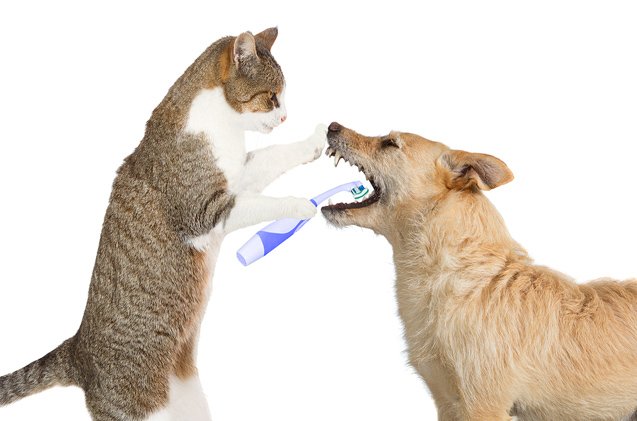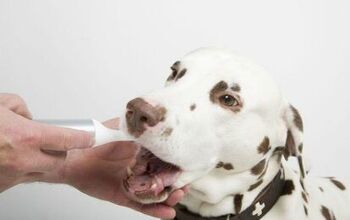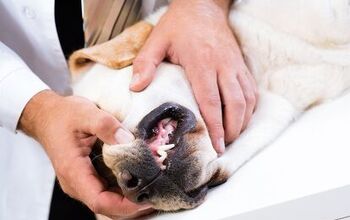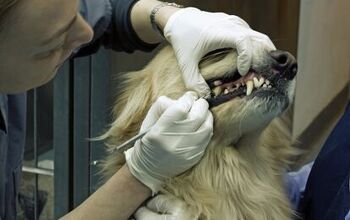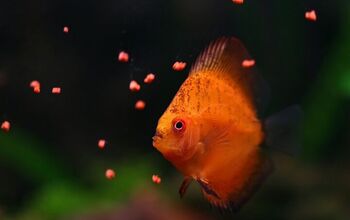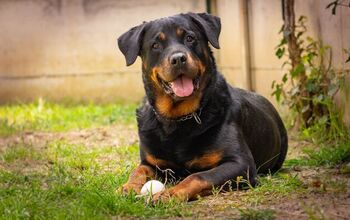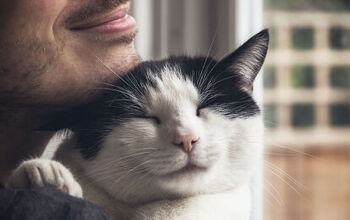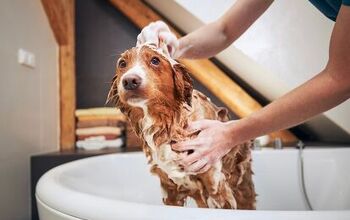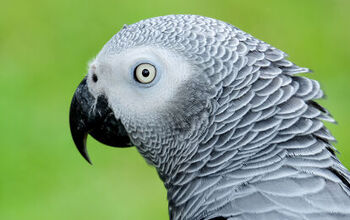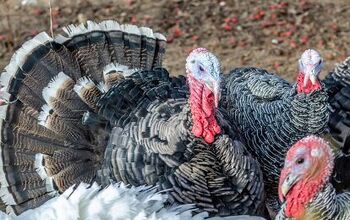4 Smile-Worthy Common Doggy Dental Myths

Many dog parents don’t realize the importance of providing basic dental care for their pets. Your dog is just as much at risk for gum disease and other dental problems as you are, so you should make an effort to take care of those pearly whites at home and visit the vet for routine check-ups. You also need to be careful not to subscribe to dental myths that could negatively impact your dog’s dental health.
Myth Dogs Don’t Need Routine Dental Care
It may seem silly to brush your dog’s teeth but the truth of the matter is that routine dental care is just as important for dogs as it is for humans. Plaque and tartar build up on your dog’s teeth in the same way that they build up on your. That means if you don’t brush your dog’s teeth or treat him to a routine dental cleaning, tartar could accumulate and cause gum disease. In addition to scheduling at least one dental check-up for your dog each year, you should consider brushing his teeth several times a week. Make sure you only use dog-friendly toothpaste and toothbrushes to get the job done.
Related: How to Brush Dog Teeth
Myth Dry Dog Food is Better for Your Dog’s Teeth than Canned Food
One of the main benefits dry food makers tout over wet food in terms of dental health for dogs is the fact that it provides some chewing resistance. Hard dog food helps to scrape away some of the plaque and tartar buildup on your dog’s teeth. What you need to realize, however, is that not all dry dog foods provide dental benefits – if you plan to use dry dog food to improve your dog’s dental health, you need to choose a food that has been specially formulated for that purpose. Dental dog treats and rawhide bones are more effective in cleaning your dog’s teeth than dry dog food.
Related: Common Periodontal Disease In Dogs
Myth Fractured Teeth Don’t Need to be Treated
A fractured tooth may not cause your dog a great deal of pain and it may not seem like a big problem, but it definitely needs to be treated. Even a minor tooth fracture, if left untreated, could lead to inflammation and infection. If the infection is allowed to progress, it could affect not only the tooth itself but the nerve and the blood supply to the tooth. At this point, the tooth may die and your dog will no longer experience any pain, but the infection could continue to spread deeper into the bone supporting the tooth. At this point, surgical extraction of the tooth may be the only treatment option. If you still do not provide treatment, an abscess could form which could impact your dog’s ability to eat.
Myth A Dog’s Mouth is Cleaner than a Human’s
Okay, so to most people, this one doesn’t sound right. That’s because it isn’t. Most humans are proactive when it comes to their own dental health, brushing their teeth regularly and having routine dental cleanings. Add to this the fact that a human’s mouth rarely comes into contact with external bacteria. A dog’s mouth, on the other hand, is constantly exposed to external bacteria because dogs have a tendency to sniff and taste everything they can get their paws on. Both a human mouth and a dog’s mouth are full of bacteria, but those bacteria are species-specific – this is why dog bites typically don’t cause infections and why it isn’t dangerous to share food with your dog (it’s just a little bit gross).
Hopefully after reading these four myths about dog dental health you realize that your dog’s dental health is just as important as your own. Caring for your dog’s dental health may be different than caring for yours, but that doesn’t make it any less important.

Kate Barrington is the loving owner of two cats (Bagel and Munchkin) and a noisy herd of guinea pigs. Having grown up with golden retrievers, Kate has a great deal of experience with dogs but labels herself a lover of all pets. Having received a Bachelor's degree in English, Kate has combined her love for pets and her passion for writing to create her own freelance writing business, specializing in the pet niche.
More by Kate Barrington



